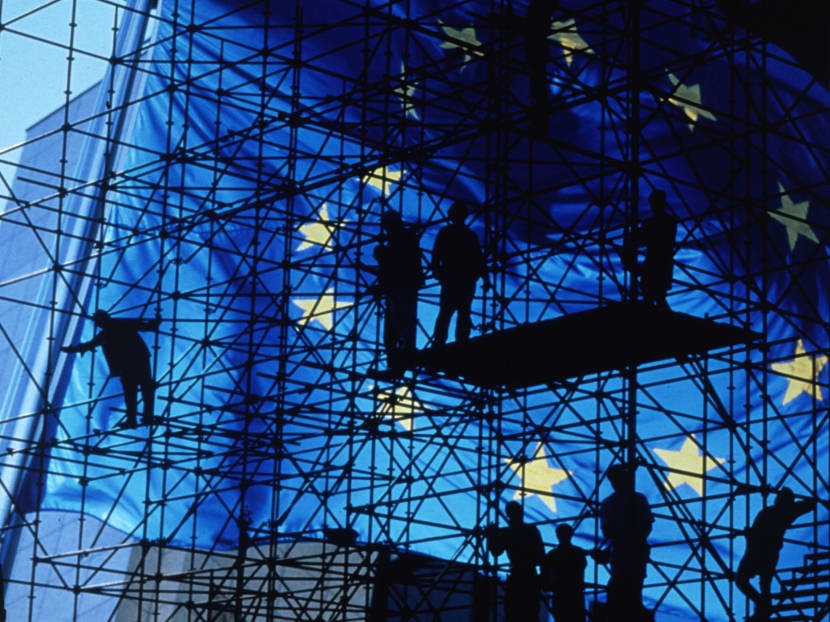EU at 60: United in diversity
Last week, on-board the ITS Carabiniere, a European multi-mission frigate that made its port-of-call in Singapore, we marked the 60th anniversary of the Rome Treaty. The anniversary celebration, co-hosted with Italian Ambassador Paolo Crudele, was symbolic in its setting. The European Union (EU) was born to end the cycle of wars that ravaged our continent.
Last week, on-board the ITS Carabiniere, a European multi-mission frigate that made its port-of-call in Singapore, we marked the 60th anniversary of the Rome Treaty. The anniversary celebration, co-hosted with Italian Ambassador Paolo Crudele, was symbolic in its setting. The European Union (EU) was born to end the cycle of wars that ravaged our continent.
On Saturday (March 25), the EU marks 60 years since the treaty was signed by six countries. Belgium, France, Italy, Luxembourg, the Netherlands and West Germany – took what many regarded as the first step towards a united Europe – as they decided to pool their resources to safeguard peace, liberty and independence, and to unite around these values.
Together, they moved to create a single market by removing trade and other barriers to pave the way for a democratic, prosperous and united Europe of currently 28 members.
When we started, only 12 of our present members were democracies. The continent was divided by an Iron Curtain. This has since given way to the largest union of democracies in the world. At the same time we have witnessed the longest period of peace on the continent. In recognition of this achievement, the Nobel Peace Prize was awarded in 2012 to EU institutions for efforts to maintain and foster peace in Europe.
In the decades that have followed since 1957, this peace has allowed free movement of goods, services and people, while helping European economies to flourish. The internal market continues to boost EU industries, creating more jobs.
Today, the EU is the largest single market in the world and a leading foreign investor.
Furthermore, it provides more development cooperation and humanitarian aid than any other partner.
The EU is also increasingly active as a global security provider. What this means is that the EU currently has five military and 11 civilian missions on three continents; with 7,000 personnel deployed under the EU flag, working and often taking risks, for peace and stability.
As Mrs Josephine Teo, Singapore’s Senior Minister of State (Prime Minister’s Office, Ministry of Foreign Affairs and Ministry of Transport) observed in her speech at our anniversary celebrations here: “The EU often occupies pole position on many other international rankings, such as rule of law and ease of doing business. The Treaty of Rome goes beyond economic policy. It clearly recognises the strategic value of free trade in securing peace and prosperity.”
Free trade within the EU has also opened up opportunities to develop a network of bilateral and regional trade agreements. The EU has achieved a strong position by acting together with one voice on the global stage, by playing a key role in removing barriers to trade as a member of the World Trade Organization as well as concluding bilateral trade deals with many important partners around the world – such as the recent Comprehensive Economic and Trade Agreement with Canada.
In South-East Asia, the EU has found like-minded partners in Singapore and the Association of Southeast Asian Nations (ASEAN), which celebrated its 50th anniversary this year. Earlier this month, the EU Commissioner for Trade, Ms Cecilia Malmström, was in Singapore and met with Deputy Prime Minister Tharman Shanmugaratnam and Minister for Trade Lim Hng Kiang.
She noted that the EU and Singapore are “natural allies” in supporting rules-based open trade. Both sides are now working to ensure that the EU-Singapore Free Trade Agreement will enter into force soon.
Moreover, the EU and ASEAN agreed at their last ministerial meeting in Manila this month to develop a EU-ASEAN FTA for the future.
In addition, the proposed EU-ASEAN Comprehensive Air Transport Agreement will increase connectivity and promote our people-to-people ties.
Given the current challenging times we are in when the global balance of power is shifting and the foundations of a rules-based international order are being tested, this anniversary is an opportunity therefore to reaffirm our commitment to the values and objectives on which the European project is founded, and to take pragmatic steps forward.
This is also a moment for the EU to open a new chapter of its own development – this time without the United Kingdom – as a European Union of 27.
The Treaty of Rome has allowed us to come this far. While the achievements of the past continue to inspire us, we have outlined a new vision, the EU Global Strategy, that calls for greater engagement in a fragile international environment.
The EU stands for a rules-based international order, with free and fair trade, open societies to tackle challenges ranging from terrorism, security to climate change.
In that respect, we have in Singapore a like-minded partner. Collaboration and multilateralism are best epitomised in the 40 years of the EU-ASEAN relationship, a partnership of growing importance to us.
The Rome Treaty Anniversary is a fitting moment to remember that Europe has been at its best when it has been united, outward looking and confident.
ABOUT THE AUTHOR:
Dr Michael Pulch is the EU Ambassador to Singapore







